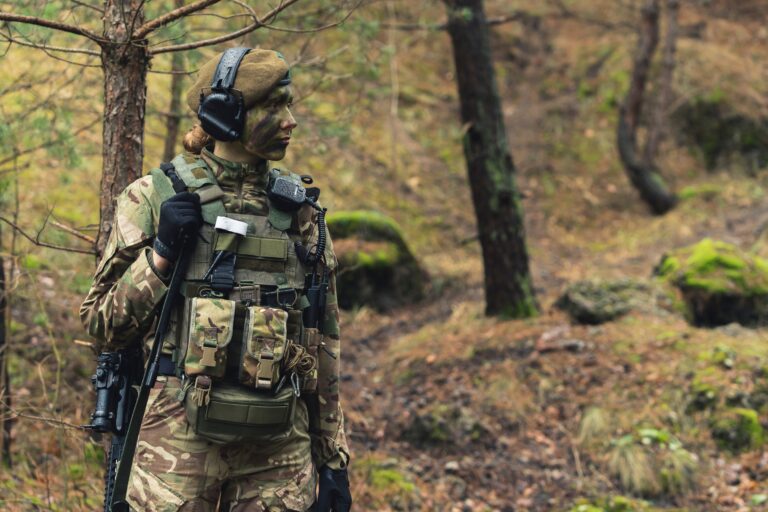Military Training Accidents: Are Lessons Being Learnt?
Most individuals who decide to join the UK Armed Forces to “serve Queen and Country” know that it is an extremely risky undertaking. The risk of untimely death or serious life-changing injury when posted on operational tour is seen as part and parcel of the job. However, few may be aware that similar risks arise in military training; the Ministry of Defence (MoD) published statistics in January 2016 that show 1 in 20 deaths occur in training and not on operational tour. The recent Castlemartin firing range incident is heartbreakingly sad evidence of this. Are enough lessons being learnt and are steps being taken to avoid preventable deaths?
The Incident
The incident occurred on the 14th June 2017 at the Castlemartin firing range in Pembrokeshire, South-West Wales, during a live-fire exercise. Royal Tank Regiment Corporals Matthew Hatfield, 27, and Darren Nielson, 31, sadly lost their lives when an ammunition round exploded as they were undertaking a training exercise at the range. Two other soldiers were treated for serious injuries following the incident. It is understood that there was an explosion of intense fire inside the Challenger 2 tank when the incident occurred.
Louise Hunt, Senior Coroner for Birmingham and Solihill, has been appointed by the Chief Coroner to undertake a full inquest into the deaths. A pre-inquest review is likely to take place in February 2018, with the full inquest being heard next July.
The Royal Tank Regiment is the oldest tank Regiment in the world and has been deployed in key conflicts since the end of the Second World War. This year the Regiment has conducted exercises in countries including South Korea and Jordan.
The Service Inquiry
Police investigations took place following the incident and the Defence Accident Investigation branch of the MoD is in the process of conducting a full investigation in conjunction with the civilian police.
A worldwide ban on tank live-firing exercises for UK forces has been put in place whilst the investigation is carried out. The inquiry is expected to focus attention on how potentially dangerous training exercises in the UK are run.
History repeating itself?
Sadly, the events which occurred in South-West Wales in June are not the first time a potentially avoidable event has had tragic consequences.
In 2012, Ranger Michael Maguire, was killed by a stray bullet whilst eating his lunch in a supposed “safe area” during a training incident at the Castlemartin firing range. He was just 21 years old and had previously survived a tour of war torn Afghanistan. The inquest returned a verdict of unlawful killing after evidence was heard that the targets had been set up in a “dangerous” position where soldiers were having their lunch.
In July 2013, three soldiers died during a 16.4 mile march on the Brecon Beacons. All three died from severe hyperthermia caused by temperatures in excess of 27C during the march. It emerged that there was no water at two of the five checkpoints and no medics at three of them. It is thought that the exercise should have been postponed but went ahead because postponing the march would have caused too much paperwork. At the inquest, the coroner recorded a verdict of death by neglect. Rather alarmingly, it was revealed that Army personnel had told the coroner that they were not aware of the content of the MoD guidelines on exercises taking place in extreme weather conditions and had been told not to bother reading them.
These are just a few examples of deaths that could have been prevented during training.
An inquiry was launched in 2016 into whether the MoD was doing enough to stop deaths during exercises and training, it was revealed that 131 service personnel have died in training related accidents since 2000. This is in comparison to the 179 service personnel killed in six years of active war in Afghanistan. Of that figure, aircraft and vehicle accidents account for 48 of the deaths, with live fire shooting exercises accounting for 11 deaths in the same period. 22 service personnel also died in adventurous training exercises, with deaths during parachuting, rock climbing, diving and paragliding. Deaths were highest in the Army at 88, followed by 21 deaths in the RAF, 14 in the Navy and 8 in the Royal Marines.
Safety during training exercises of course has to be balanced against the need to ensure that our military personnel are trained and tested to the highest possible standard, before they are deployed on active duty. But the inquests into many of these deaths conclude that simple steps could have been taken to avoid injury and in these circumstances we have to question whether more could be done to protect our troops.
Where training has resulted in death or injury, we can help advise about the prospect of bringing a civil claim and assist service families during the process of an inquest. Service personnel and their families should be fully compensated for their losses and given the support that they need.
Claire Withey is a senior solicitor in the Military Claims team at Bolt Burdon Kemp. If you think you or a loved one may have a claim, contact Claire free of charge and in confidence on 020 7288 4821 or at ClaireWithey@boltburdonkemp.co.uk. Alternatively, complete this form and one of the solicitors in the Military team will contact you. Find out more about the team Military Claims team.










